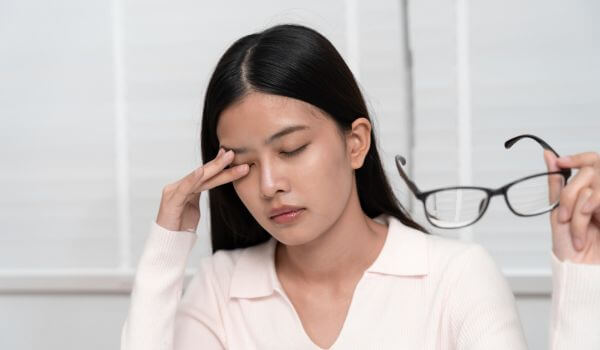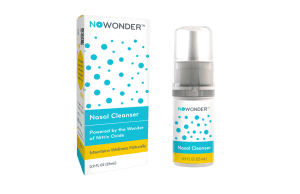 The physical and mental changes experienced by women in menopause have an ever more significant impact on their daily lives. According to the website North American Menopause Society (NAMS), every day, around six thousand American women will become menopausal. That’s approximately two million women each year. What’s more, the number is growing faster than the overall population. This problem is not unique to the US but is a characteristic of all advanced societies.
The physical and mental changes experienced by women in menopause have an ever more significant impact on their daily lives. According to the website North American Menopause Society (NAMS), every day, around six thousand American women will become menopausal. That’s approximately two million women each year. What’s more, the number is growing faster than the overall population. This problem is not unique to the US but is a characteristic of all advanced societies.
For many women, hormone replacement therapy (HRT) has been a common treatment to manage menopause symptoms like hot flashes, mood swings, and bone loss. While effective for many, some women seek alternatives. As awareness of menopause and its symptoms grows, so do the options for non-HRT treatments, including natural supplements, dietary changes, lifestyle adjustments, and innovative therapies.
Why are more women living longer with menopause?
It’s a matter of simple arithmetic. On average, puberty starts at age 14 or 15, and menopause sets in at around 45. This hasn’t changed much throughout history. According to actuarial tables, life expectancy at birth for females born in the US in 1930 was 62. This meant that women were fertile for roughly 30 years and then could live with menopause for about 17 years – about one quarter of their lives. Now, a woman born in 1970 has a life expectancy of 77. She would be fertile for the length (30 years, starting at 14 or 15) but could now be living with menopause for 32 years – close to double the previous length, making menopause a more significant period of a woman’s adult life than ever. This makes handling the changes experienced by women in menopause far more important.
How does menopause affect a woman’s health?
Menopause is primarily a set of symptoms driven by the decrease in the production of estrogen and progesterone in the ovaries triggered by advancing age.
Perhaps the most well-known effects of menopause are associated with this transition, often referred to as the “menopausal syndrome.” These include hot flashes, night sweats, mood changes, sleep disturbances, loss of libido, and vaginal dryness. These symptoms can be highly disruptive. They may be transient, but for many women, some symptoms persist, often for the remainder of their lives.
Menopause can have more specific health impacts. For instance, the decline in estrogen levels is closely tied to an increased risk of cardiovascular disease, the leading cause of death among postmenopausal women. Before menopause, women tend to have a lower risk of heart disease than men, but this disappears after menopause, underlining the protective role of estrogen on heart health.
Another significant health concern brought on by changes experienced by women in menopause is osteoporosis, a condition characterized by weak and brittle bones. Estrogen plays a key role in preserving bone density by regulating the balance between cells that build bone and cells that break bone down. Following menopause, the significant drop in estrogen levels reduces bone density, increasing the likelihood of fractures and other injuries.
Additionally, the metabolic changes that occur during menopause, such as the shift in fat storage to the abdominal area and the increase in insulin resistance, can contribute to weight gain and heighten the risk of metabolic syndrome and type 2 and type 3 diabetes.
Menopause can also impact mental health. Some women may experience depression, anxiety, or cognitive changes, such as memory loss or difficulty concentrating. These issues may directly result from hormonal changes or be related to the stress of dealing with other menopausal symptoms.
Menopause can impact sexual health. Lowered estrogen levels can lead to changes in the vagina, such as dryness and loss of elasticity, making intercourse uncomfortable. This and decreased libido can lead to challenges in maintaining a satisfying sex life.
What’s wrong with the treatment of women in menopause?
According to an analysis published in HealthCareBrew.com, there is a ‘massive care gap’ in the US due to the shortage of ob-gyn healthcare personnel who specialize in menopause. Of the two million US women who enter menopause each year, fewer than twenty percent are diagnosed and treated. The article explores a survey of ob-gyn residents in the US published in 2013 in the Journal of the North American Menopause Society (NAMS). More than 60% of those surveyed reported having limited knowledge of fundamental aspects of menopause medicine.
What are the options for handling the unwanted results of menopause
Hormone Replacement Therapy (HRT) is currently the most common line of treatment. It’s easy to understand how it works. Menopause comes from a steep decline in the female hormone estrogen as a woman emerges from her fertile years, usually in the mid- to late-forties. HRT replaces the missing estrogen. It may have to be combined with another hormone, progesterone, since long-term HRT with pure estrogen can raise the risk of breast cancer.
The main purpose of HRT is to reduce, to some degree, some or all of the symptoms. There are many choices that will deliver the required estrogen or progesterone dose via oral medication, skin gels or ointments, and vaginal suppositories or creams. It’s essential to get guidance from a healthcare provider who understands the condition and has experience in treating menopause with sympathy and understanding. A few years ago I wrote a blog titled “Menopause is not a disease,” defining the most important aspects of menopause today. I’ll repeat the closing sentence, because it is just as relevant today as it was then. “Now, hopefully, women will feel empowered to take control of their bodies and their minds and approach menopause not as a disease that needs treatment but as a normal state to be managed.”
Some of the treatments we have recommended include oral meds like Premarin, Progyluton, Estrace, Activella, Prempro, Minesse, Prometrium, or Eviana, skin patches such as Estradot, Estrogel Topical Gel, and Ovestin, internal rings such as Estring, Jaydess, and Premarin Vaginal Cream, Ovestin, or Vagifem vaginal creams.
However, there are some risks associated with long-term HRT. These fears primarily come from surveys showing an increased incidence of breast and uterine cancer (especially when pure estrogen supplements aren’t taken along with progesterone), cardiovascular disease, and stroke for women over 60.
The risks can depend on the dose level of HRT and how it is delivered. For a few years, there was a growing body of opinion that the negatives of HRT (side effects) outweighed the benefits, especially because women were living longer and so needed extended periods of treatment, since HRT is not a cure for menopause, and is given just to reduce the symptoms. More recent research has swung the pendulum the other way, and doctors now feel more confident in prescribing the right hormone replacement therapy for their patients.
HRT alternatives for menopause symptom relief
Changes in the lining of the vagina can have profound effects on comfort, sleep, and sex life. FOr many women, a condition known as “vulvovaginal atrophy” can develop. “Shifting levels of .. estrogen during the menopause transition produce changes in a woman’s body…. Both the vagina and the external female genitals (vulva) are affected.… After menopause, when estrogen levels are low, the vaginal lining is thinner and has fewer folds, making it less flexible. Dry, fragile vulvovaginal tissues are susceptible to injury, tearing, and bleeding during intercourse.”
If oral medications that boost estrogen levels are not appropriate (generally due to side effects or increased risk of breast or uterine cancer), there are alternatives that may provide relief to specific symptoms or help a woman’s body replace the missing hormones in a more holistic way. Creams like Premarin Vaginal Cream deliver lower doses of estrogen that don’t get the whole body’s levels back up to pre-menopause levels, but have the benefit of relieving the symptoms coming from vaginal dryness. Another example is Gynoflor, which is not an estrogen booster. Read more here about what this gentle alternative treatment can do to alleviate the problems coming from changes to the vagina.
Diet and lifestyle interventions for women in menopause
As people age, their metabolism slows down, and the risk of conditions like osteoporosis increases. Eating the right foods such as vegetables, protein and calcium can help reduce these risks. For one of the easier options, the Mediterranean diet is a great choice. It includes lean proteins, whole grains, and lots of plant-based foods, making it a healthy and balanced meal plan.
Foods to include
Calcium-rich foods
During menopause, a person’s body goes through many changes, including ones they might not notice right away. Along with hot flashes and night sweats, bones start to weaken. This bone loss is common during menopause and can sometimes lead to issues like osteoporosis. The body builds bone until about age 30. After that, bone loss begins. Around menopause, when estrogen levels drop, this bone loss happens more quickly. This means there is a need to include more calcium-rich foods in the diet to maintain strong and healthy bones. Some good options for calcium include cow’s milk, fortified soy milk, yoghurt, cheese, almonds, and small fish with bones such as anchovies or sardines.
Vegetables
In the vegetable drawer, it’s important not to skip out on those healthy greens. Try filling half the plate with leafy green vegetables. Leafy vegetables are not just good for weight management; they also support strong bones. Vegetables like spinach, turnips, and collard greens provide plenty of calcium. Other vegetables that can help with keeping a healthy weight and easing the intensity of hot flashes include broccoli, cauliflower, asparagus, Brussels sprouts and kale.
Lean protein
When it comes to protein, choosing lean meats and other healthy protein sources is important. This can help manage weight while also boosting bone strength and maintaining muscle. Grilled chicken, tuna, turkey, lean beef, tofu, lentils, and beans are all great options.
Soy products
Soy products in the kitchen can serve more than one purpose. Research shows they may help ease some menopausal symptoms. Soy from food products might help reduce hot flashes and night sweats for some women. This is because soy contains phytoestrogens, which are chemicals that act like estrogen in the body. However, it doesn’t work for everyone. Some people don’t have the enzyme needed to turn phytoestrogens into estrogen. Some foods made from soy include edamame (soybeans), soy flour, tofu, and soy milk.
Supplements to consider
Making dietary changes can be challenging, especially if one has dietary restrictions. Taking supplements might help cover any nutrients missing, but it’s important to check with a doctor before starting any new supplements.
Calcium
Calcium is an important nutrient, and it’s not necessary to rely on dairy to get enough of it. For those who are lactose intolerant, sensitive to dairy, or follow a vegan diet, eating dairy products like yogurt may not be an option. Instead, over-the-counter calcium supplements can help. However, it’s important not to take too much calcium, as too much can cause problems. It’s also better to split the dose, since the body can only absorb about 500 milligrams of calcium at a time.
Vitamin D
Vitamin D is essential for the body to absorb calcium. Both nutrients work together to strengthen and support bone structure. Many people don’t get enough of this important vitamin from sunlight, so a supplement might be necessary. However, since needs can vary, it’s important to consult a healthcare provider to check vitamin D levels before starting supplementation.
Hormone balancing supplements
There are many supplements on the market that claim to help balance hormones, but many contain ingredients that have not been proven effective (such as wild yam) or can be dangerous for some women (such as black cohosh). The Women’s Hormone Support Pack contains ingredients clinically proven to help balance hormones, and may be effective particularly during perimenopause. However it is recommended to have DHEA levels checked before taking supplements containing DHEA.
Foods to avoid
During menopause, what is removed from the diet can be just as important as what is included. It’s important to pay attention to the body’s reactions. If certain foods seem to make symptoms worse, removing or replacing them might help. There are also a few common foods that may be worth avoiding during this time, especially for those dealing with hot flashes or night sweats.
Spicy food
Spicy foods can raise body temperature and make hot flashes and night sweats worse. Items like cayenne pepper, hot salsa, and jalapeno peppers are common culprits. To stay cool, it’s a good idea to skip these and use milder seasonings instead. Herbs like thyme or basil can add flavor without causing discomfort.
Caffeine and alcohol
Caffeine could play a role in making menopausal hot flashes worse. Too much caffeine might increase the intensity of these heat surges, though cutting it out completely isn’t always necessary. The same applies to alcohol. If someone is dealing with severe hot flashes, night sweats, difficulty sleeping, or unexpected weight gain, they might consider skipping their evening glass of wine to see if it helps reduce these symptoms.
Carbs and starchy foods
During menopause, some individuals may experience weight gain. To help manage this, they might choose to reduce their intake of foods such as pasta, white bread, potatoes, and rice. Processed foods and sugars can be harder for the body to handle, and menopause often makes it even more challenging for some individuals to digest these types of foods properly.
The bottom line is that using the appropriate therapy, diet and lifestyle interventions can keep sex life active and pleasurable at any stage during a woman’s life cycle; for a more detailed explanation of what, where, and how menopause impacts a woman’s sex life, read here.
Common questions about hormone replacement therapy
Who should avoid HRT?
Hormone Replacement Therapy is not recommended for women with a history of breast, ovarian, or uterine cancer, blood clots, uncontrolled high blood pressure, or liver disease.
What are the risks of taking HRT long-term?
Hormone replacement therapy can be prescribed to ease some of the symptoms of menopause, but it is associated with many serious risks when used over the long term. The benefits include lowering the risk of bone fractures, avoiding hot flashes and changes to the lining of the vagina, it increases the risk of heart and vascular problems, and breast and uterine cancer.
Do the benefits of HRT outweigh the risks for women in menopause?
For most women, the benefits of hormone replacement therapy usually outweigh the risks. However, the risks depend on the type of HRT, when the therapy is started (sooner the better), for how long it is taken, and the person’s general health. Speak to an experienced healthcare provider before starting HRT, or if it’s already being used, and there are any signs of unexpected side effects.
Where is the best place to apply estrogen cream?
Be sure to follow the instructions that come with any prescribed medications. If there are any questions, be sure to consult with a physician or pharmacist. For most vaginal creams, it’s necessary to cover the estrogen receptors near the opening and inside the vagina. It may not be necessary to push the cream high into the vagina.













